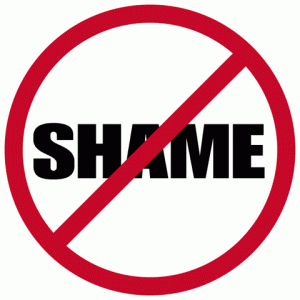 “A man should never be ashamed to own that he has been in the wrong, which is but saying… that he is wiser today than yesterday.” -Jonathan Swift
“A man should never be ashamed to own that he has been in the wrong, which is but saying… that he is wiser today than yesterday.” -Jonathan Swift
“Pride attaches undue importance to the superiority of one’s status in the eyes of others; And shame is fear of humiliation at one’s inferior status in the estimation of others.” -Lao Tzu
“We but half express ourselves, and are ashamed of that divine idea which each of us represents.“- Ralph Waldo Emerson
What is Shame?
Shame is the inner voice that condemns ourselves. “Something is wrong with me,” “I am inferior to others,” and “I am undeserving of compassion, understanding, and/or love” are a few examples of what the voice might say. Shame is often a diversion from other feelings we may experience as uncomfortable such as fear, anger, vulnerability, neediness, and sadness. Instead of feeling one of these emotions, we choose to think self-depreciating thoughts instead or in conjunction with the feeling.
Why Do We Do This?
We most likely do this because when we were young, we were shamed by our parents or caregivers for having emotions that they were uncomfortable with in themselves. (Because their parents were not comfortable with those emotions in themselves, and so on…) For example, if a mother is uncomfortable with her own fear, it will be difficult for her to tolerate her child’s fear. She will do her best, but eventually, given the right circumstances, she will be triggered, and will say something like, “Quit acting like such a baby!” or “I’ll give you something to cry about!” when her child expresses being afraid of something. Thus, the child learns that his/her fear is not ok, and internalizes that to mean that he/she is not ok when feeling that emotion. This child then grows into an adult, and when he/she feels fear, automatically shames him/herself for feeling fear, creating unnecessary self-aggression.
How Does Shame Differ from Guilt?
We feel guilt when we have done something that we deem a mistake. Guilt motivates us to say, “I’m sorry,” or to make amends in whatever way is appropriate given the situation. Shame on the other hand, is an attack on ourselves. Guilt is about our behavior- shame is about who we believe we are.
The Shame and Low-Self Esteem Connection
Shame and low self esteem are intimately connected. If we want to feel good about ourselves, becoming aware of how shame is contributing to our negative self-perception and where it originates can be helpful.
So, What To Do About Shame?
Next month’s article will explore how to recognize when we are shaming ourselves, what to do once we notice it, and how cultivating this awareness can be instrumental in helping us feel better about who we are.

